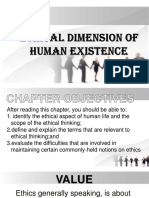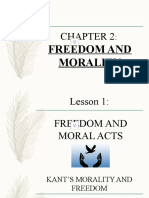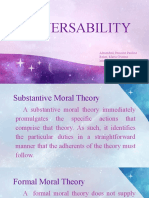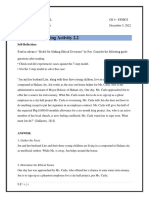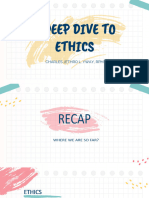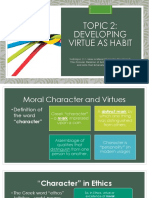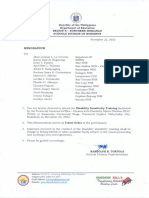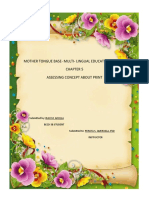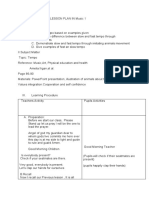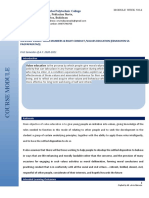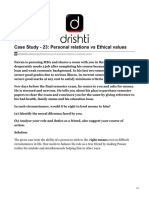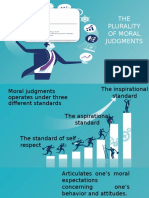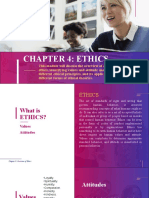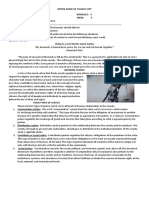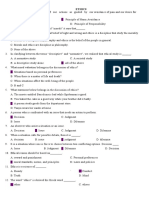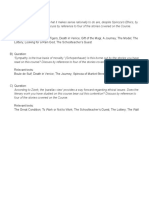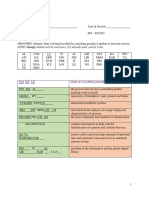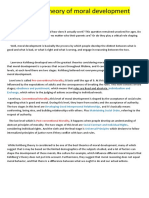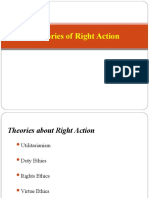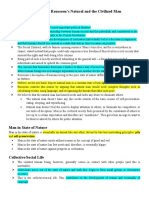100% found this document useful (1 vote)
1K views4 pagesDon Carlos Polytechnic College Ge 8: Ethics
This document provides an overview of an ethics course module. It discusses the difference between reason and will, and how they can be seen as standing in an antithetical relationship. It also examines five main ethical frameworks: virtue ethics, natural law ethics, deontological ethics, utilitarian ethics, and a love and justice framework. For each framework, it provides a brief explanation of its principles and how it guides moral decision-making. The document aims to help students distinguish between reason and will, understand the concept of ethical frameworks, and differentiate among the five frameworks.
Uploaded by
Chen MaglunsodCopyright
© © All Rights Reserved
We take content rights seriously. If you suspect this is your content, claim it here.
Available Formats
Download as DOCX, PDF, TXT or read online on Scribd
100% found this document useful (1 vote)
1K views4 pagesDon Carlos Polytechnic College Ge 8: Ethics
This document provides an overview of an ethics course module. It discusses the difference between reason and will, and how they can be seen as standing in an antithetical relationship. It also examines five main ethical frameworks: virtue ethics, natural law ethics, deontological ethics, utilitarian ethics, and a love and justice framework. For each framework, it provides a brief explanation of its principles and how it guides moral decision-making. The document aims to help students distinguish between reason and will, understand the concept of ethical frameworks, and differentiate among the five frameworks.
Uploaded by
Chen MaglunsodCopyright
© © All Rights Reserved
We take content rights seriously. If you suspect this is your content, claim it here.
Available Formats
Download as DOCX, PDF, TXT or read online on Scribd
/ 4
